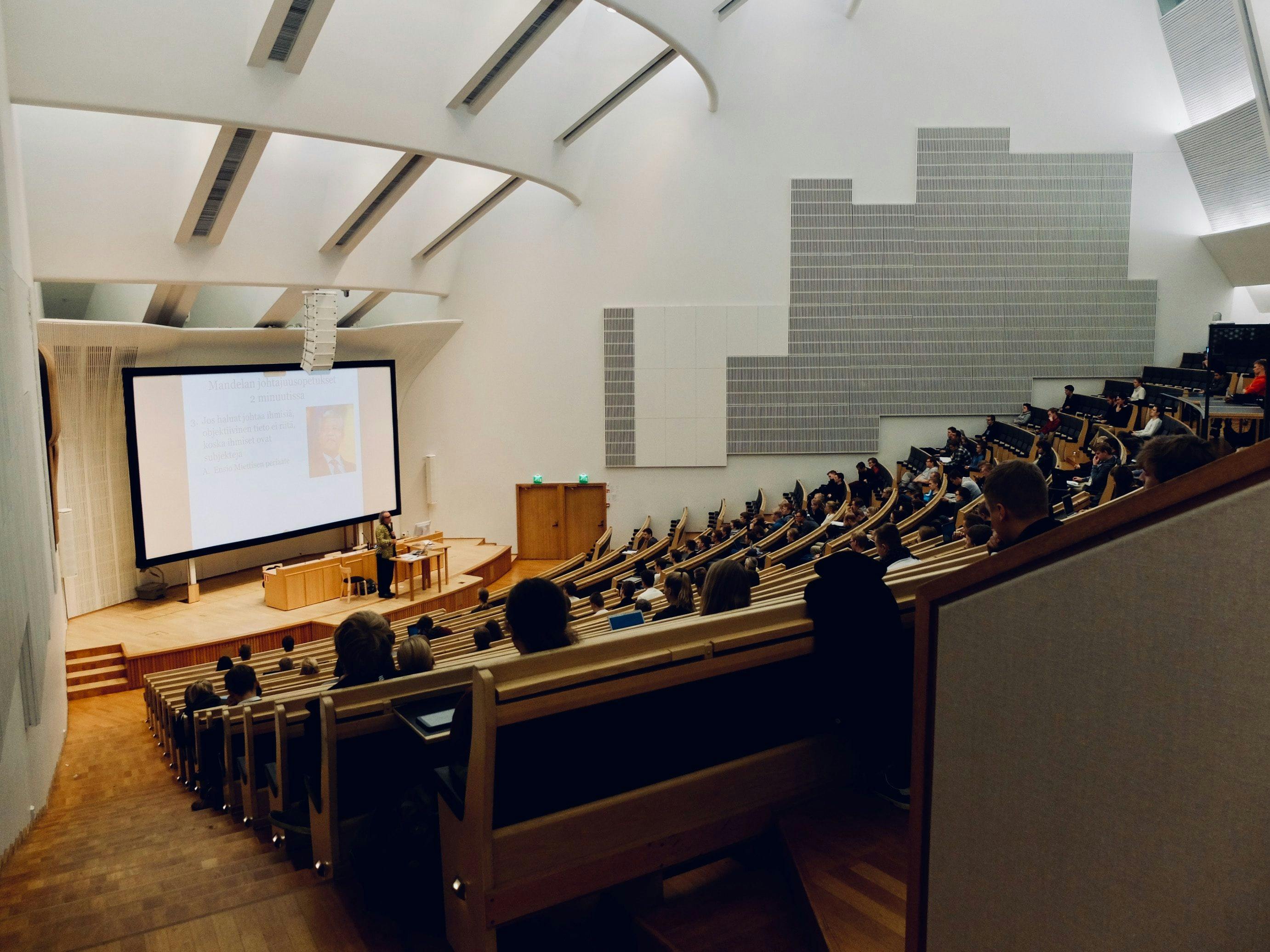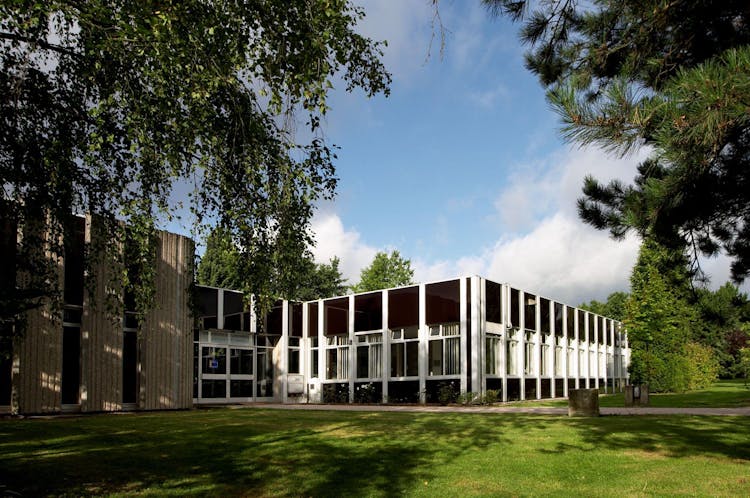
How to find a job at university in Luxembourg
Working in a university offers distinct advantages compared to other job sectors. This article takes an in-depth look at the broad landscape of university employment, exploring available job types, compensations, and more.
Founded in 2003, the University of Luxembourg stands out as a global research institution, renowned for its unique blend of multilingualism and a focus on diverse academic disciplines. It's home to over 6,700 students and more than 2,400 staff members from across the globe. If you are looking to secure a job at Luxembourg University, this article will provide you with a step-by-step instruction on how to do so.
Why work at the university?
Universities are a melting pot of different professions, including professors, lecturers, researchers, administrative staff, healthcare professionals, technicians, and engineers, to name a few. In Luxembourg, the University of Luxembourg is the country's most prominent public university. There are also opportunities within private institutions.
The University of Luxembourg offers a great work environment with modern campuses right in the heart of the capital, giving employees the freedom to think in new ways. Here, learning and intellectual stimulation are not just encouraged, they're part of the culture. You'll also get to share your knowledge in a genuine way, and you can adapt your work to fit your strengths and preferences.
Modern campuses
An integral aspect that sets the University of Luxembourg apart as an attractive workplace is its state-of-the-art facilities and strategic locations. The university boasts two modern campuses in the capital, along with a modern building. In Kirchberg, one of Luxembourg City's districts, you'll find one campus and the Weicker building, located approximately 20 minutes from the campus. The other campus in the capital is situated in the Limpertsberg district.
However, the primary campus is in Belval, just outside the capital. Although located beyond the city limits, it enjoys an excellent location next to Esch-sur-Alzette, one of Luxembourg's major cities, and is less than half an hour from the capital with excellent public transport connections.
The Kirchberg Campus is situated at the heart of Luxembourg's commercial district, surrounded by financial and banking sectors, as well as European institutions. Nearby attractions include the Kirschberg shopping center, Le Coque sports center, the Grand Duke Jean Museum of Modern Art (MUDAM), and the Luxembourg Philharmonic.
Faculties on this campus
- Faculty of Science, Technology, and Medicine (FSTM).
- Faculty of Law, Economics, and Finance (FDEF).
- Interdisciplinary Centre for Security, Reliability, and Trust (SnT).
Address and contact information
- Address: 6 Rue Richard Coudenhove-Kalergi, Kirchberg Luxembourg.
- Phone: (+352) 46 66 44 57 77.
- Website: uni.lu.
Located in Kirchberg but outside the main campus, the Weicker building is about a 20-minute walk from the campus. It houses:
- Faculty of Law, Economics, and Finance (FDEF).
- Department of Law.
Address and contact information:
- Address: 4 Rue Alphonse Weicker, Kirchberg Luxembourg.
- Phone: (+352) 46 66 44 54 00.
- Website: uni.lu.
The Limpertsberg Campus is in a residential area near the center of Luxembourg City and just a few minutes from Kirchberg.
Faculties on this campus:
- Faculty of Law, Economics, and Finance (FDEF).
- Faculty of Science, Technology, and Medicine (FSTM).
- Service of Physics and Materials Science (DPHYMS).
Address and contact information:
- Address: 162a Av. de la Faiencerie, Limpertsberg Luxembourg.
- Phone: (+352) 46 66 44 62 90.
- Website: uni.lu.
The main site of the University of Luxembourg, the Belval Campus, is near Esch-sur-Alzette, the second-largest city in Luxembourg. Formerly the site of the country's largest steelworks, Belval now hosts research and learning facilities, the university library, student housing, and more. The campus is centrally located in an urban district with excellent public transportation links.
Faculties on this campus:
- Rectorate & Central Administration.
- Luxembourg Centre for Systems Biomedicine (LCSB).
- Faculty of Science, Technology, and Medicine (FSTM).
- Luxembourg Centre for Contemporary and Digital History (C²DH).
- Doctoral School in Science and Engineering (DSSE).
- Service of Studies and Student Life (SEVE).
- Interdisciplinary Centre for Security, Reliability, and Trust (SnT).
Address and contact information:
- Address: 2 place de l’Université, Esch-sur-Alzette.
- Phone: (+352) 4 66 64 41.
- Website: uni.lu.
Great intellectual freedom
Working at the University of Luxembourg, and indeed at most universities, offers a significant benefit, unparalleled intellectual freedom rarely found in other professions. Beyond teaching, a faculty position involves dedicated time for research. Initially, one may not have full autonomy over project and topic selection, as integration into the center's ongoing research is essential.
However, with years of experience, progressing to a research director role grants substantial freedom. As a research director, you gain the autonomy to choose projects, focus on specific topics, and determine the methodologies applied, providing an enriching and intellectually liberating environment that fosters academic exploration and innovation.
The true transmission of your knowledge
At the university, a primary role is the genuine transmission of knowledge through lectures, tutorials, and practical assignments. As an educator, you bear the responsibility of shaping and inspiring the next generation by sharing your expertise through teaching. Interacting with adults who have chosen to pursue higher education makes the process more manageable compared to dealing with children or adolescents, creating a dynamic and fulfilling teaching environment.
Constant learning and intellectual stimulation
Complementing the teaching aspect at the university is an integral component of research, offering continuous intellectual stimulation. Engaging in ongoing research exposes you to a constant learning curve, tackling challenging problems daily. As a researcher, your role involves experimenting and exploring to find solutions, providing a consistently stimulating and invigorating environment beyond the realm of teaching. The dynamic interplay between teaching and research ensures a fulfilling and intellectually enriching experience in the university setting.
Flexibility in the workplace
While teaching at the university may not offer the same vacation benefits as secondary school educators, who align their breaks with students, university professors enjoy unique advantages not found in other professions. University work schedules tend to be more flexible than many other careers.




Which jobs are available to work at university: Ph.D. vacancies, work with students, rectorate and more
Universities offer a diverse array of employment opportunities, catering to individuals aspiring for roles in teaching, administration, project management, and beyond. Nowhere else will you find such a variety of jobs under one roof.
Universities are dedicated to teaching and research, and academic staff play a pivotal role in their functioning. Teaching at a university entails delivering lectures, mentoring students, and designing curriculum plans. Simultaneously, research involves creative and systematic efforts to expand the body of knowledge. Academic staff comprises various roles.
Nevertheless, the university requires the presence of numerous additional professionals, including caretakers, librarians, and administrators, in order to achieve full operational capacity.
Professional and Administrative Roles
Facilities Management Positions
Technical Jobs
Library Jobs
Other Roles
Where to look for jobs?
If you are interested in jobs at the University of Luxembourg, they have a dedicated page where they show all the current job offers in the different areas. The other universities usually have similar pages, it is a matter of going to the main page of the university and looking for the careers or recruitment section.
Step-by-step guidelines to build a career at the University of Luxembourg
Embarking on a career at the University of Luxembourg presents a rewarding journey filled with diverse opportunities and intellectual enrichment. Whether aspiring to contribute to cutting-edge research, engage in dynamic teaching, or take on vital administrative roles, this step-by-step guide offers valuable insights into building a successful career within this esteemed academic institution.
What are the requirements to work at the University of Luxembourg?
The University of Luxembourg offers a spectrum of career opportunities, each with its own set of educational and experiential requirements. Let's take a look into the specific qualifications needed for the different positions within the university:
To access entry-level positions, a minimum of a four-year university degree is typically required.
Given the broad spectrum of administrative roles, requirements vary widely. However, a common denominator is typically a university degree related to a specific field, such as business administration or accounting.
Qualifications for roles in libraries or technical jobs can vary but generally require a three-year bachelor's degree.
Roles in facilities management, including security personnel, cleaning staff, or catering personnel, may necessitate fewer formal qualifications. Still, prior experience in the relevant function is often a preferred requirement.
How to find a job in University?
An evident starting point for finding job opportunities within universities is to directly explore their respective websites. Most universities maintain dedicated pages featuring available job listings. Here are examples of job pages for major universities in Luxembourg:
While manually checking each university's website is a valid approach, it can become tedious. A more practical alternative is to leverage job search portals, where universities, like any other organization, post their job openings. These portals offer the advantage of consolidating job listings from multiple institutions.
How to apply for a job?
Once you meet the necessary requirements in terms of education and experience and have identified one or more job opportunities that interest you, it's time to apply. A strong application is built on a well-crafted CV and a compelling cover letter.


Once your CV and cover letter are prepared, the next step is to apply for the desired position. Submit your application through the university's official website or the relevant job portal, ensuring all required documents are attached. It's crucial to follow the application instructions provided by the university, paying attention to deadlines and any specific requirements outlined in the job posting.
If you plan to apply for a job at the University of Luxembourg, please take into account the recommendations mentioned on their website:
- Each application should include a CV and a cover letter.
- Early application is highly encouraged, as applications are processed upon reception.
- Apply online formally through the HR system, applications by email are not considered.

Uni.lu Job Portal
Salaries for university jobs in Luxembourg in 2023-2024
According to Paylab, academic positions at universities in Luxembourg typically range from 2,950 euros to 7,154 euros per month. The variation in salaries is significant, reflecting differences in job roles, education levels, and experience. However, more detailed information on specific positions is not provided by Paylab.
Frequently Asked Questions (FAQ)
What are the main advantages of working at a university in Luxembourg?
Working at a university in Luxembourg offers a stimulating environment with modern campuses, intellectual freedom, and constant learning opportunities. The true transmission of knowledge, flexibility in the workplace, and the chance to contribute to cutting-edge research make university positions unique. Luxembourg's central location and the international community within the university add to the enriching experience.
What types of jobs are available at universities in Luxembourg?
Universities in Luxembourg provide a diverse range of employment opportunities, including academic positions (professors, researchers), administrative roles, technical positions, library jobs, and facilities management roles. The variety ensures that individuals with different skills and qualifications can find suitable positions within the academic setting.
What steps can I follow to build a career at the University of Luxembourg?
To build a successful career at the University of Luxembourg, start by exploring academic or administrative roles based on your expertise. Tailor your education and experience to meet the requirements, create a compelling CV and cover letter, and actively search for job opportunities on university websites and job portals. Networking within the academic community and showcasing a commitment to continuous learning will enhance your career prospects.
Where can I find job listings for university positions in Luxembourg?
Job listings for university positions in Luxembourg can be found on the official websites of the University of Luxembourg and other academic institutions. Additionally, international job portals such as eures.europa.eu, eurojobs.com, indeed.com and local platforms like jobfinder.lu, jobs.lu and moovijob.com regularly feature university job openings. Regularly checking these platforms ensures you stay updated on available opportunities.
Source: recruitment.uni.lu, www.superprof.fr, inomics.com, career-advice.jobs.ac.uk, www.indeed.com, www.paylab.com
We took photos from these sources: Photo by Dom Fou for Unsplash



